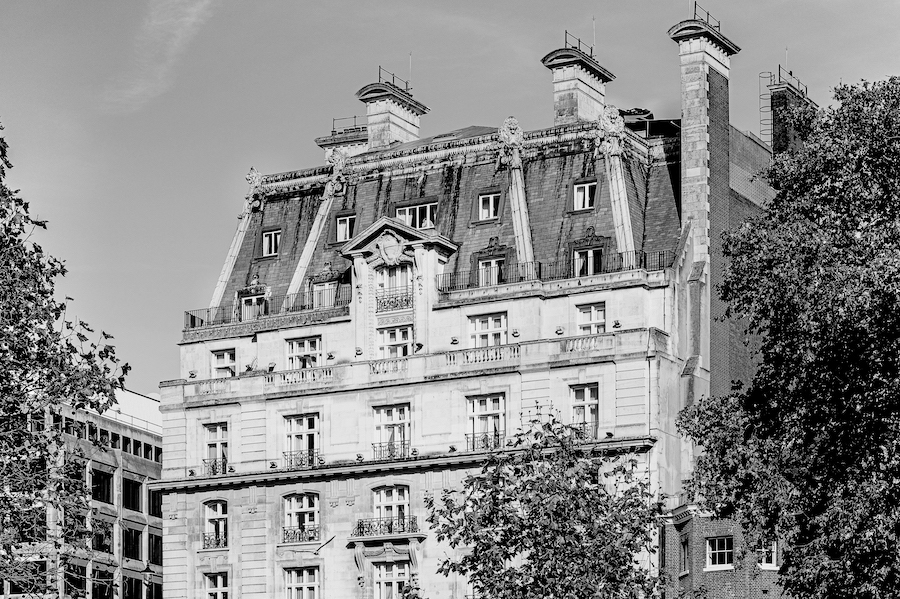The startling tale of how a lorry-driving conman extracted £1m from a property mogul as a down payment on a top London hotel.
To grasp how a bankrupt 49-year-old Yorkshire lorry driver induced a respectable Dutch property mogul to part with £1m in return for a pledge to sell him the Ritz for £250m requires a refresher on the feverish state of the UK real estate sector in December 2006, the month Marcel Boekhoorn wired the money to Anthony Lee.
Irish investors had been sluicing money into UK real estate like a leprechaun on poteen: £4.6bn in 2006 alone. Allied Irish Bank’s loan book had quadrupled to €35bn between 2000 and 2005. In May 2006 I chaired a session at a British Council for Offices conference in Dublin titled (by me, omitting ‘the Hell’) ‘Where Does All This Money Come From?’
In early 2006 Lee’s associate, Irishman Patrick Dolan, approached Marcus Sweeting about buying the hotel. Sweeting was a surveyor of good standing, who stood a couple of degrees of separation from the Barclay Brothers, owners of the Ritz. His response? Offers of well above £450m only, please, accompanied by a £30m good faith deposit.
Lee misrepresented this brush-off to property finder Karen Maguire. Saying that he now had a nod and a wink from the Barclay Brothers that he could have the Ritz for £200m – and was buying with the aid of a mysterious Irish millionaire. Lee said the hotel had to be worth £250m – and that he was happy to split the £50m profit with any buyer.
Maguire had already introduced Lee to Terry Collins of London Allied Holdings (LAH) in January. A plan was agreed for LAH to buy the Piccadilly hotel for £250m from Lee, then immediately flip it to another buyer for £258.5m. The £8.5m being commission that Collins would split with Maguire. Several months of Lee blarney followed.
On 11 July Lee said he had signed a deal with the Barclays to buy the hotel for £200m. It is worth stressing at this point that Maguire and Collins were innocent parties, as later events proved. On 29 August Collins told Lee that he had secured his position in the deal with loan approval from the Bank of Scotland to pay Lee £250m.
Now came the tricky bit – getting paid something, anything, for selling something you don’t own
Now came the tricky bit – getting paid something, anything, for selling something you don’t own. Lee fended off an anxious Collins for a couple of months. Perhaps he was preoccupied with his own troubles: in the summer of
Retailers influence shoppers with ‘limited time’ deals. Con artists do the same to persuade their victims to act quickly – but only after spending months building trust. “Many men kissed the blarney stone,” said former American con artist Simon Lovell in his memoir, How to Cheat at Everything, “a con man has swallowed it.”
On 8 December Lee persuaded Collins that another buyer was in the wings – one willing to pay a £2m non-returnable deposit. Lee then deployed the sting: telling Collins that if he paid a returnable deposit of £1m the deal would stay with him. Lee lied the loan could be secured against his fictitious ownership of a golf course at Flaxby in Yorkshire.
Reassured, Collins contacted Marcel Boekhoorn, a substantial figure, then and now, in the Dutch property market. Boekhoorn met Collins in London on 14 December 2006 and agreed to pay LAH £258.5m. He also agreed to pay the £1m deposit to hold the deal. The euro equivalent – €1,481,920 – was remitted by Boekhoorn to Lee on 15 December.
Lee was of course unable to prove he had bought the Ritz and was therefore unable to provide proof of ownership. The pressure was on. An anxious Collins pressed Lee at a meeting on 25 January 2007. Lee played the hustler’s ‘extraction’ card: the Barclay Brothers were now selling a large portfolio alongside the Ritz, so the package price was now £470m.
Collins was furious and stormed out. On 30 January he demanded the return of the £1m. No response. In early February Collins’ lawyers, Beachcroft, twice demanded the money back. No response. Collins then sued for negligent misrepresentation, clearly still convinced that Lee was a man of substance, rather than straw.
The money? On 18 December Lee paid €80,600 for a Land Rover after sending Patrick Dolan €650,000. Dolan bought a €63,000 Mercedes, transferred €431,000 to his wife and paid off the mortgage of €46,000 on their 1930s semi in Barnet. At the time of the civil hearing in July 2007, Lee still had €400,000 left in his accounts.
The four-day case came before the High Court on 24 July 2007 in front of Mr Justice Etherton, who found “the bare facts of the case are, on any footing, remarkable”. Lee apologised for his non-appearance on day one, blaming the non-running of his train. He did turn up on the Tuesday but failed to appear again.
The week-long hearing finished without him – and found Lee liable for damages for ‘fraudulent misrepresentation’. And that was that. But North Yorkshire Police had taken an interest. In July 2010 Lee, Dolan (then 65) and their solicitor, Conn Farrell, appeared at Southwark Crown Court in front of Judge Stephen Robbins.
I turned up to watch, gazing at Lee from time to time, wondering at the bravado of the burly lorry driver who arguably deserves his own Netflix documentary. I thought Dolan and Farrell acquitted themselves well in the witness box – and they were indeed acquitted. Farrell argued that he was acting innocently on instructions. Dolan told the court that the negotiations in respect of the Ritz were separate and distinct from his and Lee’s dealings with LAH in respect of sites at St Neots and Flaxby – and that he personally never received any money in respect of the proposed purchase of the Ritz. Lee and Dolan both said the £1m was instead compensation for commission Lee had been unable to make in respect of the sale of the St Neots property, and that the €644,730 Lee paid to Dolan was for assistance provided in connection with the St Neots and Flaxby property deals.
Lee was given five years by the judge, who accused him of perpetrating “an elaborate and outrageous scam”. You can’t help but admire the audacity of Lee. But 2006 was the year in which John Maynard Keynes’ ‘animal spirits’ were at their most vigorous. There was talk of a ‘paradigm shift’ in economies: no more bust, just boom. At the time that the civil action began in July 2007, so did the biggest economic bust since the 1930s.
The Barclay Brothers finally sold the Ritz for £750m in early 2020.








